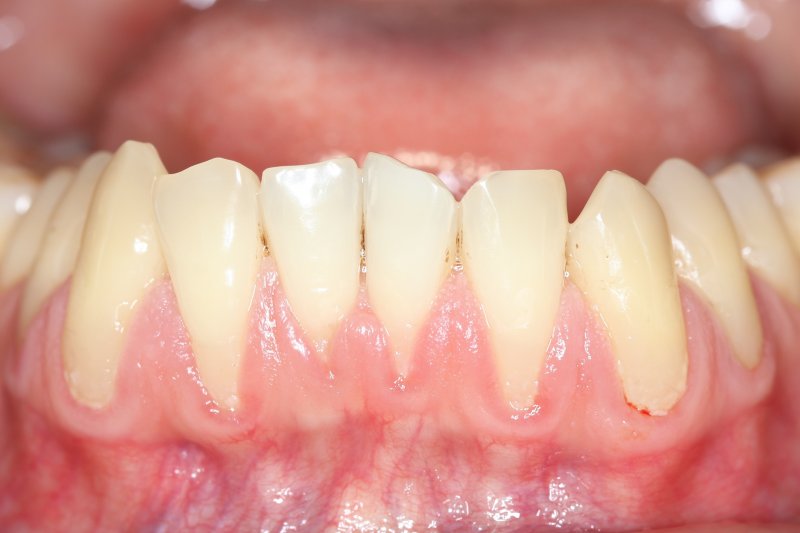
You may not think about your gums very often, but they play an important role in keeping your smile healthy. However, thin gum tissue or gum disease can cause the gums to recede, meaning they pull back from the teeth and expose the roots. When this happens, you’ll probably have one question on your mind: do receded gums grow back on their own? Here is what you need to know about treating this condition.
What Causes Gums to Recede?
First, you need to understand what can cause your gums to recede in the first place. As mentioned above, it’s often a side effect of gum disease, which is chronic inflammation of the gum tissues. The gums gradually recede because the jawbone underneath resorbs as a consequence of gum inflammation.
Other risk factors for gum recession include genetically thin gum tissue, brushing too aggressively, or mechanical trauma to the gum tissues. Whatever the cause, the result is the same: gums that are no longer providing proper protection to the teeth.
Can the Gums Grow Back After Gum Recession?
Unfortunately, receded gums are unable to grow back on their own. This means that once gum recession occurs it often needs to be regenerated with gum grafts.
What Treatments are Available for Gum Recession?
Generally, the most reliable long-term solution for gum recession is a gum graft. The procedure involves taking a small amount of tissue from the roof of your mouth (or elsewhere in the oral cavity depending on the type of graft being performed). Said tissue is then surgically placed over the area where gum recession has occurred. This both restores the appearance of your gums and protects the tooth and jawbone from harm.
Do You Need Treatment for Gum Recession?
It’s one thing to know how gum recession is addressed, but how will you know such treatment is necessary? Generally speaking, the most obvious symptom of gum recession is a tooth or teeth that look longer than normal. Other symptoms include pain near the gum line, sensitivity to heat or cold, and discomfort while brushing your teeth. You should schedule an appointment with a periodontist right away if you notice any warning signs that there might be something wrong with your gums.
Gum recession doesn’t heal on its own, but it can be repaired. As long as you’re being mindful of your gum health and are proactive about seeking care when you need it, you can protect your smile from the worst of the damage that can occur after the gums pull away from the teeth.
About the Author
Dr. Alexander Schrott is a highly trained periodontist. He received his Doctor of Dental Medicine at the Harvard School of Dental Medicine, and he has been certified by both the American and German Boards of Periodontology. He has been focusing on the treatment of gum recession for almost 20 years and has been able to help many patients reclaim their gum health with various types of soft tissue grafts. To learn more about the solutions he offers for gum disease and gum recession at his Belmont practice, visit his website or call (617) 484-9240.
